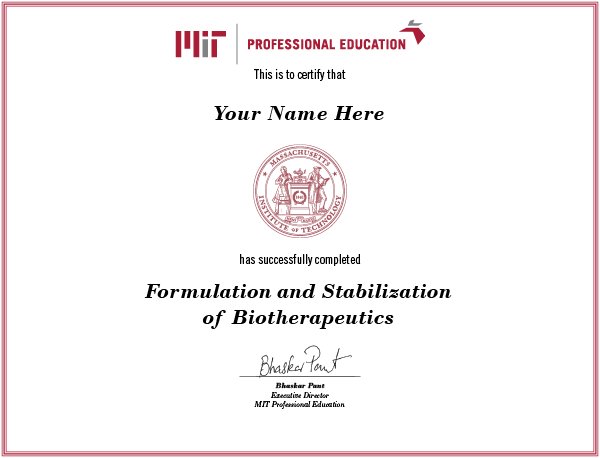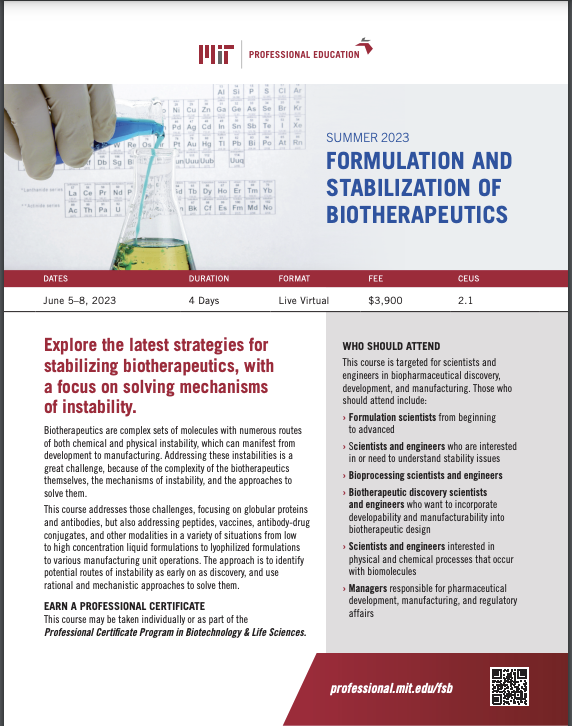Designed for scientists and engineers working in biopharmaceutical discovery, development, and manufacturing, this dynamic four-day course explores various strategies for overcoming challenges related to the stability, solubility, and viscosity of biotherapeutics. There is a focus on a fundamental mechanistic understanding of protein stability, providing the basis for formulating and stabilizing biopharmaceuticals. The course will also present advances in emerging areas, such as cell and gene therapy as well as machine learning.
THIS COURSE MAY BE TAKEN INDIVIDUALLY OR AS part of THE PROFESSIONAL CERTIFICATE PROGRAM IN BIOTECHNOLOGY & LIFE SCIENCES.
The type of content you will learn in this course, whether it's a foundational understanding of the subject, the hottest trends and developments in the field, or suggested practical applications for industry.
How the course is taught, from traditional classroom lectures and riveting discussions to group projects to engaging and interactive simulations and exercises with your peers.
What level of expertise and familiarity the material in this course assumes you have. The greater the amount of introductory material taught in the course, the less you will need to be familiar with when you attend.




